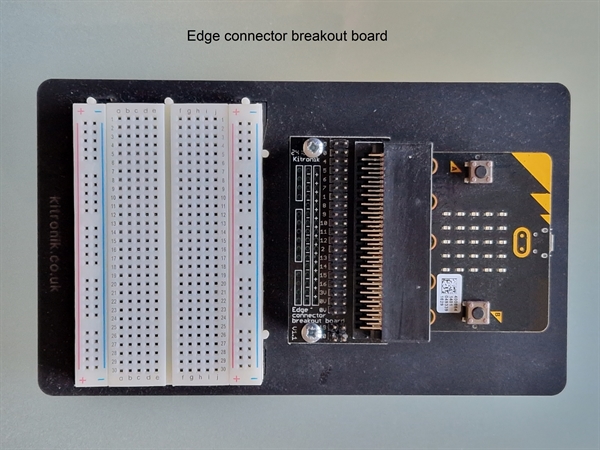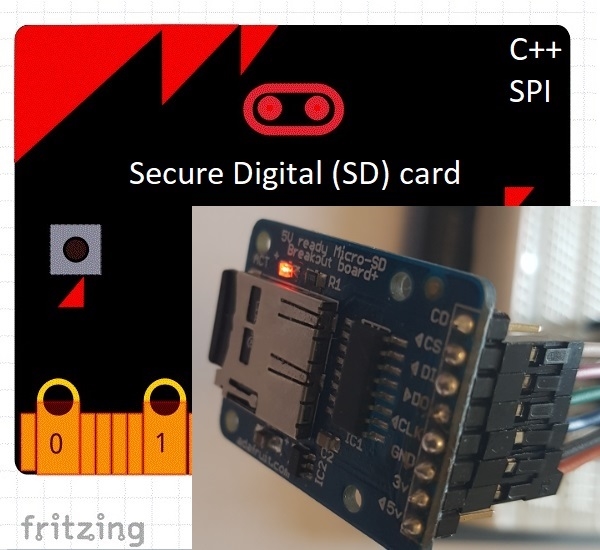BBC Microbit + Secure Digital
I feel it is always good to save my code variables, so I can go back and debug or understand better the robot behaviour. Now progress into wireless communication, I still see the benefit of saving observations locally on the robots. Partly because if communication is lost, I still have a black-box taking readings. I also don't have a computer by the side of the lake to store observations.
Photo

